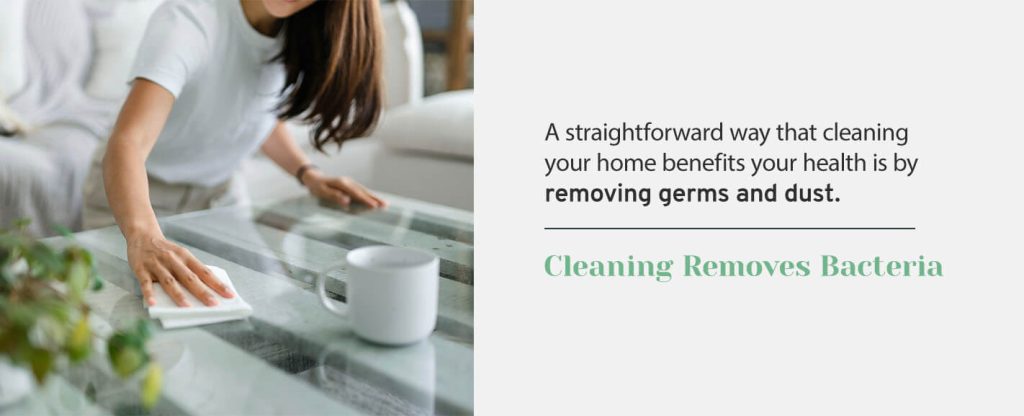The Impact of Clutter Reduction on Mental Health and Well-Being

Understanding the Impact of Clutter on Mental Well-Being
The environments we inhabit have a profound effect on our mental health, often shaping our daily experiences and overall outlook on life. In contemporary society, where the pace of life is incessantly rapid, the presence of clutter—whether it be in our physical surroundings or digital devices—can contribute to feelings of overwhelm and chaos. Understanding the relationship between clutter and mental health invites us to recognize that decluttering is more than just a household chore; it is a pathway to enhanced mental health and a richer sense of well-being.
Research from psychology and neuroscience indicates that a clutter-free environment provides substantial benefits. For instance, studies have shown that clutter can impair our ability to focus due to the constant visual distractions present in a disorganized space. This tendency to feel overwhelmed can create a sense of anxiety, thereby reducing productivity. In contrast, a clean, organized area fosters a sense of calm and promotes mental clarity, allowing individuals to concentrate better on tasks at hand.
- Reduced Stress Levels: Many individuals report that the act of decluttering calms their mind, helping them feel more in control of their surroundings. This is particularly important in stressful environments, such as homes shared by families or the workspace of demanding jobs.
- Improved Focus: A well-organized workspace has been linked to enhanced performance. For example, offices that prioritize minimalism and organization tend to see employees who are more productive and focused. This resonates with the popular adage, “less is more.”
- Boosted Mood: Numerous testimonials highlight the positive emotional shifts people experience after decluttering their spaces. They report feeling lighter and more energized, which often leads to increased motivation to tackle other challenges in their lives.
Moreover, decluttering promotes a sense of mindfulness and intentionality. By engaging in the process, individuals are compelled to evaluate their belongings critically, leading to thoughtful decisions about what truly adds value to their lives. For many, this act of letting go is liberating and can initiate a transformative journey towards a more fulfilling existence.
Techniques for Effective Decluttering
To reap the benefits of decluttering, consider adopting practical strategies such as the “one in, one out” rule, where every new item brought into the home necessitates the removal of an existing one. Additionally, the KonMari method encourages individuals to keep only those items that “spark joy,” which promotes both mindfulness and satisfaction in one’s environment.
As we explore the intricate connection between clutter reduction and mental well-being, it becomes apparent that creating space in our environments can pave the way for clarity and contentment. By simplifying our surroundings, we might take a significant step toward enhancing our mental health and achieving a more balanced life. Consider how making your space more intentional could contribute to your overall happiness and well-being—after all, a serene environment can serve as a foundation for a peaceful mind.

DIVE DEEPER: Click here to discover more about minimalism in your daily routine</
Exploring the Psychological Benefits of Decluttering
The act of decluttering is more than merely tidying up; it is a profound step toward enhancing mental health and well-being. The impact of clutter on our psychological state can be significant, manifesting in various ways that detract from our quality of life. The pervasive effects of clutter can lead to feelings of stress, anxiety, and even depression. In contrast, a clear and organized space can serve as a sanctuary that promotes positivity and mental clarity.
Research has shown that clutter serves as a constant source of distraction, which can hinder both concentration and productivity. According to a study published in the journal Environmental Psychology, individuals working in cluttered environments experienced increased levels of stress and found it challenging to focus on tasks. This difficulty in concentrating can amplify feelings of inadequacy and frustration, resulting in a cycle that exacerbates mental health struggles. Conversely, a neatly organized space empowers individuals by reducing visual distractions and creating a sense of control over their environment.
- Enhanced Emotional Well-Being: Many individuals report that the process of decluttering invokes a sense of accomplishment and boosts their mood. The act of organizing one’s space can lead to a surge in dopamine, the neurotransmitter associated with feelings of happiness and reward. Those who engage regularly in decluttering often find that they are better equipped to manage their emotions.
- Creation of Mindful Spaces: Decluttering encourages a mindful approach to one’s possessions and surroundings. It invites individuals to reflect on their relationship with their belongings, ultimately helping them to cultivate spaces that are meaningful and comfortable. This mindfulness can extend into other areas of life, improving overall mental acuity and presence.
- Improved Sleep Quality: Interestingly, clutter is often linked to poor sleep quality due to the anxiety it can create. Those who declutter their bedrooms frequently report feeling more relaxed and better able to wind down at the end of the day, which contributes to more restful sleep.
Additionally, the social dimension of decluttering cannot be overlooked. Shared spaces, like homes or workplaces, often become sources of tension and conflict when clutter becomes an issue. Decluttering can promote harmony and reduce interpersonal strife by fostering a collective sense of responsibility for maintaining a tidy environment. Studies conducted on team dynamics illustrate that collaborative efforts in decluttering not only enhance relationships but also improve collective performance and morale.
As we delve deeper into the intrinsic value of decluttering, it aligns with broader trends in mental health advocacy that emphasize holistic practices for well-being. By consciously making space and creating an environment that reflects our corevalues, we pave the way for nurturing not just our physical surroundings but also our psychological environments.
Practical Approaches to Embrace Decluttering
To harness the benefits of decluttering, individuals are encouraged to start with small, manageable tasks. Methods like the “30-Day Decluttering Challenge,” where a new area is tackled each day, allow individuals to gradually and sustainably reduce clutter. Furthermore, setting specific goals—such as decluttering a favorite room or a digital device—provides focus and motivation.
In conclusion, the connection between decluttered environments and improved mental health is evident. By addressing clutter, individuals can experience a remarkable transformation in their emotional well-being and overall quality of life. As one begins to understand and embrace clutter reduction, the journey toward enhanced mental clarity and happiness becomes attainable.
| Category | Details |
|---|---|
| Emotional Clarity | Reducing clutter enhances focus and mental clarity, allowing individuals to prioritize their thoughts and emotions. |
| Stress Reduction | A decluttered environment helps to lower anxiety levels, creating a peaceful atmosphere that fosters well-being. |
| Improved Productivity | Less clutter leads to increased productivity, as it minimizes distractions and distractions that hinder performance. |
| Enhanced Relationships | A clean space can promote positive interactions and reduce relationship conflicts, as stressors can be diminished. |
Clutter has an undeniable impact on mental health, and its reduction can be transformative. As reported by various studies and psychological research, creating an organized and tidy environment is essential for maintaining emotional balance. People often experience a sense of control over their lives when they tackle their physical spaces, significantly boosting their self-esteem. For instance, individuals who engage in decluttering report heightened feelings of accomplishment, which correlate positively with overall mental health. Moreover, engaging in the process of creating a tailored living space can foster a sense of ownership and belonging, essential components of well-being. Continual exposure to clutter is linked to increased levels of cortisol, the stress hormone, which can lead to long-term health issues. Thus, by prioritizing clutter reduction, we enter a realm where mental wellness flourishes, allowing individuals to focus on what truly matters in their lives. This holistic approach invites readers to explore their environments and the psychological benefits that come from cultivating a calmer, cleaner space.
DIVE DEEPER: Click here to learn the art of saying no
The Transformative Power of a Clutter-Free Environment
As we examine the profound impact of clutter reduction on mental health, it is crucial to recognize the tangible changes that can occur in one’s emotional state and lifestyle through a clutter-free environment. Beyond just aesthetics, the implications of purging unnecessary items go deeper, touching on aspects of personal identity, stress relief, and even physical health.
One critical aspect of clutter reduction is its role in fostering a sense of personal identity and agency. When individuals engage in the process of decluttering, they often experience a return to self-awareness and autonomy. By choosing what to keep and what to discard, individuals reflect on their priorities and values, ultimately aligning their physical space with their personal aspirations. This re-affirmation can bolster self-esteem, leading to increased life satisfaction and a renewed sense of purpose.
- Reduced Anxiety Levels: Scientific studies have shown that the mere sight of clutter can trigger the release of cortisol, a hormone associated with stress. A research article published in the Journal of Environmental Psychology emphasizes that individuals who engage in regular decluttering not only experience lower stress levels but also report improved emotional resilience. The act of organizing one’s space can thus be seen as a proactive strategy in managing anxiety and promoting mental clarity.
- Boosted Creativity: Interestingly, environments that are clutter-free can lead to enhanced creativity. According to findings from Harvard Business Review, less clutter inspires individuals to think outside the box and approach problems from new angles. As a result, artists, writers, and thinkers benefit from their organized spaces, which allow for the free flow of ideas without the hindrance of overwhelming visual stimuli.
- Healthier Habits: A clutter-free environment can also encourage healthier habits. For instance, individuals are more likely to maintain a consistent exercise routine in spacious settings, as illustrated in recent surveys. By creating a designated workout space devoid of distractions, motivation levels rise, contributing to overall physical well-being and indirectly benefiting mental health.
Moreover, the implications of decluttering extend beyond the individual to affect interpersonal relationships within communal living spaces. In shared environments such as family homes or dormitories, clutter often becomes a source of conflict. A study from the University of California highlights that households with less clutter experience fewer arguments and greater overall satisfaction among roommates or family members. This impact on relationships can further enhance individual mental health, as social connections and emotional support are critical components of well-being.
Another exciting area of research is the correlation between decluttering and mindfulness practices. Mindfulness, which is often touted for its mental health benefits, resonates harmoniously with decluttering. Individuals who approach their living space with a mindful perspective tend to develop greater emotional awareness and reduce mindless consumption habits. The synergy of these two practices can lead to a more harmonious existence and a profound transformation in one’s outlook on life.
In light of these insights, the practice of decluttering emerges not only as a means of maintaining order but also as a powerful tool for enhancing mental health and well-being. By recognizing the multifaceted benefits stemming from a clutter-free life, individuals can embark on a transformative journey that promises holistic improvements to their emotional landscape.
DIVE DEEPER: Click here to enhance your virtual organization
Conclusion: Embracing Clutter-Free Living for Mental Wellness
In summary, the impact of clutter reduction on mental health and well-being is both profound and multifaceted. The journey towards a clutter-free environment does far more than create physical space; it serves as a catalyst for personal transformation. By allowing individuals to reclaim their identity and align their surroundings with their core values, decluttering fosters a sense of empowerment and self-worth. As discussed, it reduces anxiety levels, enhancing emotional resilience, while simultaneously boosting creativity and promoting healthier lifestyle choices.
Moreover, the benefits of a tidy environment extend into our relationships and communal spheres. A peaceful home can significantly diminish conflicts and enhance satisfaction in shared living situations. This illustrates how the act of decluttering does not merely benefit one’s mental health in isolation, but also influences interpersonal dynamics, fostering a supportive ecosystem for mental well-being.
The intriguing connection between decluttering and mindfulness practices further amplifies the positive effects of this lifestyle change. By cultivating mindfulness, individuals can cultivate a greater emotional awareness which helps mitigate mindless consumption. This holistic approach leads to a more harmonious and fulfilling life. As the evidence continues to accumulate, it becomes increasingly evident that embracing these methods can empower individuals to not only manage their physical space but also elevate their overall mental health.
For those on the path towards improved mental wellness, the act of decluttering is not just a matter of organization—it’s an invitation to a transformative way of living. By exploring the world of clutter reduction, individuals can tap into new possibilities that aid in their journey towards greater well-being and satisfaction.


